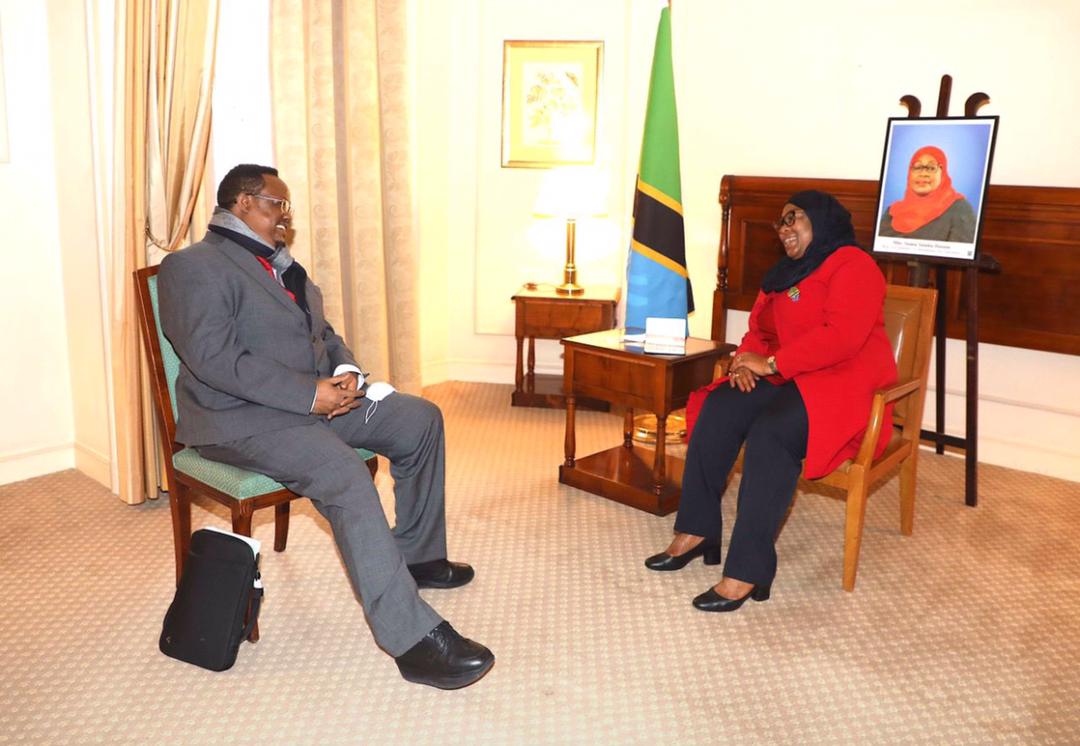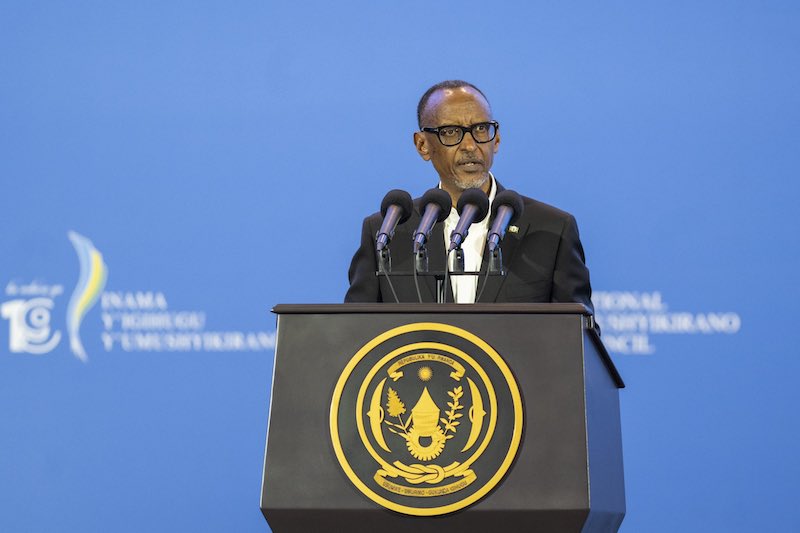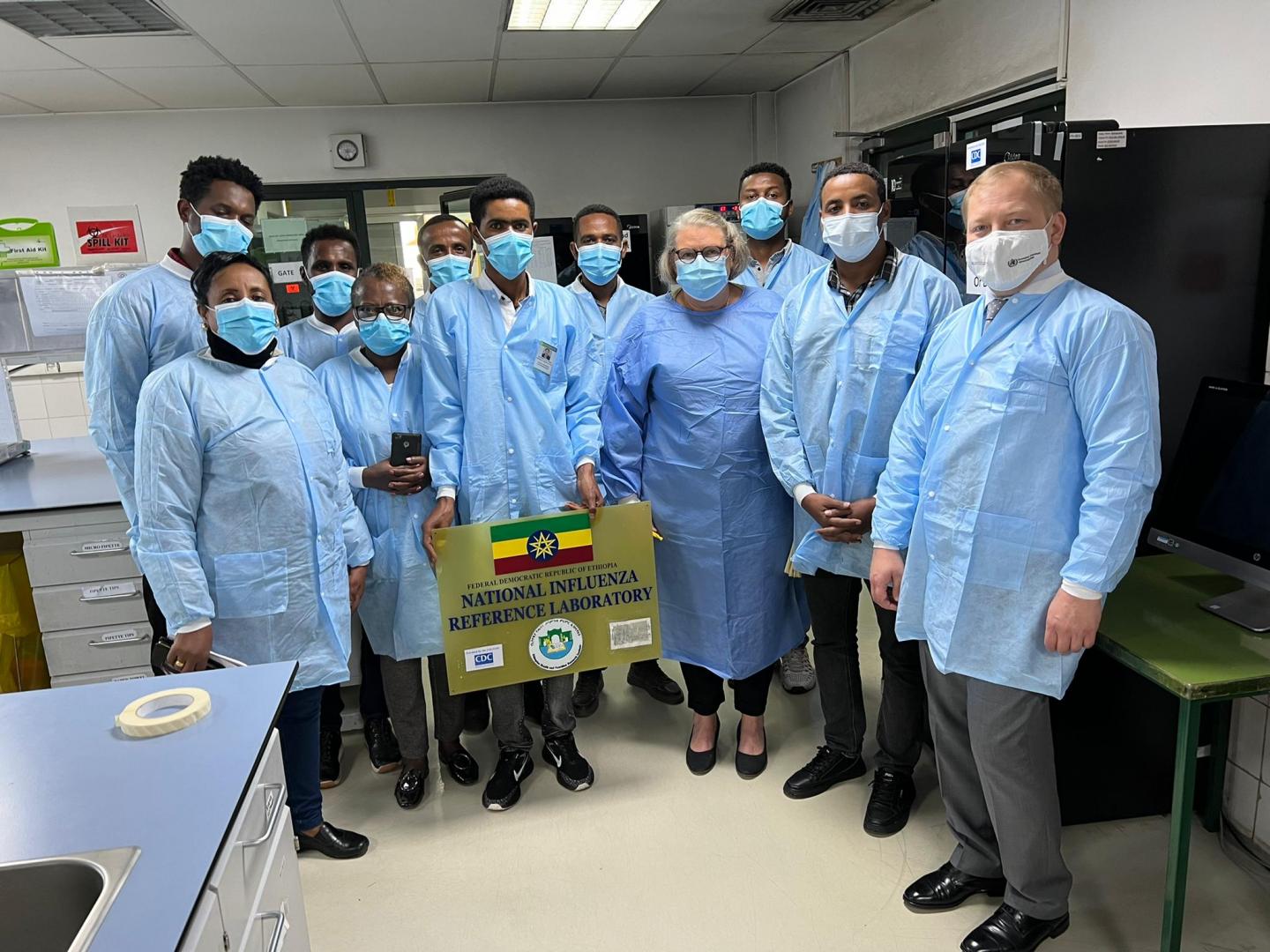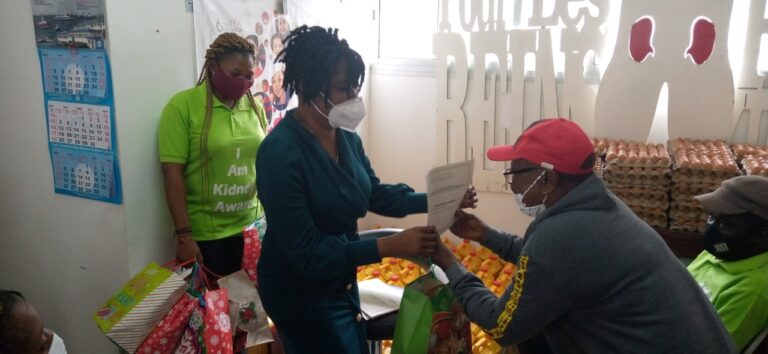Following an on-sight assessment by a team of experts from the World Health Organization (WHO), the National Influenza Laboratory of the Ethiopian Public Health Institute (EPHI) has been recognized as a World Health Organization (WHO) National Influenza Centre (NIC) and joined the WHO global influenza surveillance network. The on-site assessment was performed by a WHO team composed of the WHO Global Influenza Surveillance and Response System (GISRS) Lead, a technical specialist from the WHO Regional Office for Africa, and a laboratory coordinator from the WHO Ethiopia Country Office.
The
Global Influenza Surveillance and Response System (GISRS) was founded in 1952 as a worldwide network to protect people from the threat of influenza through effective collaboration and sharing of viruses, data and benefits based on Member States’ commitment to a global public health model. To date, including the National Influenza Centre of Ethiopia, 155 institutions in 125 countries are recognized by WHO as part of the GISRS. These GISRS-member centres collect specimens in their country, perform primary virus isolation and preliminary antigenic characterization and they ship newly isolated strains to regional WHO collaborating centres for antigenic and genetic analysis.
The assessment mission recognized the National Influenza Centre as a full member of the WHO Global Influenza Surveillance and Response System (GISRS) after evaluating its status against the WHO NIC Terms of Reference using a standardized assessment tool. The recommendations of the assessment will help the country to further strengthen the centre by identifying, prioritizing and undertaking capacity building activities, including training. It will also be useful for advocacy for funds, supplies and other resources to meet the needs of the National Influenza Centre.
National influenza centres in the WHO African Region play a key role in influenza surveillance at the national level and participate in regional and global surveillance through the WHO Global Influenza Surveillance and Response System by contributing to the implementation of the Pandemic Influenza Preparedness (PIP) Framework and International Health Regulations (IHR) 2005.
Since 2016, the WHO Regional Office for Africa has been supporting the strengthening of influenza surveillance in several countries in the region. Ethiopia has benefited from this support and has established sentinel sites in the country for epidemiological and virological surveillance of influenza.
The National Influenza Laboratory, which is a Biosafety Level 2 (BSL 2) facility, was established in 2008 with the primary purpose of serving as a virology lab for influenza and other respiratory viruses, and was exclusively designated as an influenza centre of EPHI in 2018. The Lab served as the first national laboratory to process COVID-19 specimens during the early days of the pandemic and continues to provide the service alongside other national and regional laboratories.
The laboratory has been contributing to the regional influenza network and to GISRS by sharing clinical specimens with the WHO Collaborating Centre for the Surveillance, Epidemiology and Control of Influenza in Atlanta. The laboratory has also regularly participated in the WHO GISRS External Quality Assurance Project on the detection of influenza and SARS-CoV-2 viruses by PCR, registering good performance. The laboratory continues to produce and share regular reports on influenza surveillance data to WHO which are published in the bi-weekly influenza update .
The team recommended Ethiopia to continue to contribute to regional and global influenza surveillance, enhancing its involvement in GISRS by increasing shipping of influenza positive specimens to a WHO collaborating centre for candidate influenza vaccine selection four times a year, to continue regular reporting of influenza surveillance data to WHO and to maintain participation in the annual WHO GISRS external quality assurance programme.
WHO and the WHO Collaborating Centres for Influenza are committed to continue to provide technical advice, assistance, influenza reagents and training to the National Influenza Centre.
*Source World Health Organization (WHO) - Ethiopia































